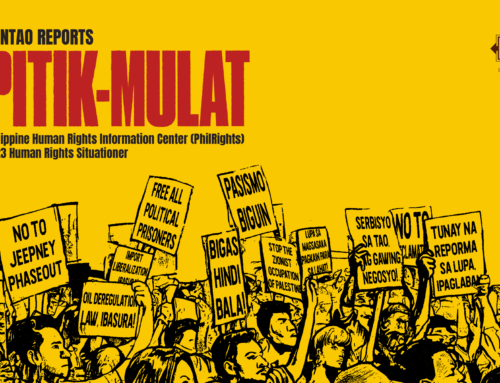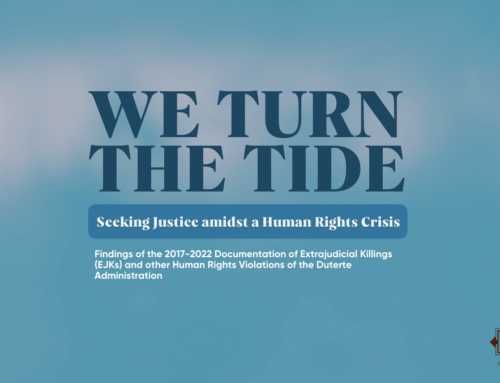(Geneva) – The Australian government should immediately stop transfers of migrant children – including unaccompanied migrant children and child asylum seekers – to offshore processing sites in Manus Island of Papua New Guinea, and Nauru.
On November 21, 2012, Australia transferred 19 people, including 4 children, to Manus. The asylum seekers, from Sri Lanka and Iran, were the first transfers to Manus since the Australian government reinstated its offshore processing policy for asylum seekers in August 2012. Under the policy, asylum seekers are transferred outside Australian jurisdiction to facilities on the islands of Nauru and Manus to await processing of their claims.
“Migrant children are often survivors of traumatic journeys to reach Australia,” said Alice Farmer, children’s rights researcher at Human Rights Watch. “Australia is callously disregarding their best interests and failing to provide them an opportunity for refuge when it pushes them out of Australian territory.”
Australia’s policy violates its obligations to children under the Convention on the Rights of the Child, which protects all children in Australia’s jurisdiction, including non-citizen children. The convention requires assessment of “the best interests of the child” in all actions concerning children. The United Nations Committee on the Rights of the Child has interpreted this to mean a comprehensive review of a migrant child’s needs for immigration status and basic services by qualified professionals in a friendly and safe atmosphere. Transfer out of Australia’s territory without such a determination fails this test, Human Rights Watch said.
The facilities at Manus and Nauru are expected ultimately to have a combined capacity of 2,100 people. Migrants, including children, may have to spend up to five years in Nauru or Manus. The government has also stated that unaccompanied migrant children – who travel without parents or other caregivers – will be among those transferred.
Amnesty International, one of the few independent observers to gain access to the facilities on Nauru, reported high rates of infection and mental health problems among the 387 migrants currently held there. On November 21, an Iranian asylum seeker attempted suicide at the Nauru facility, according to media reports. Australia has not yet started construction on permanent buildings on Nauru, leaving migrants in leaky tents during the sweltering summer.
Children’s health is at risk on these isolated islands, according to the Refugee Council of Australia. Manus has one of the highest rates of malaria anywhere in the region, as well as other mosquito-borne diseases and relentless heat. Studies published in respected medical journals show that children held for prolonged periods in immigration facilities exhibit increased signs of declining mental health, including, anxiety, depression, and post-traumatic stress disorder.
“In reinstating the offshore processing policy, Australia is putting at risk the lives and health of migrant children arriving on its shores,” Farmer said. “These children have basic needs that can be best met in Australia.”
Children fleeing persecution have the right to seek asylum, and Australia’s offshore policies violate that right, Human Rights Watch said. Australia has ratified the 1951 Convention relating to the Status of Refugees, which prohibits parties to the convention from penalizing refugees on account of their illegal entry or presence. Asylum seekers who enter Australia illegally, including children, need to be given an opportunity to have their refugee claims heard by a competent body before being forcibly returned. Neither Papua New Guinea nor Nauru yet has the capacity to provide appropriate asylum procedures for children, or legal assistance to unaccompanied migrant children.
The government has stated that it will transfer unaccompanied migrant children – children typically between the ages of 13 and 17 who travel without parents or other caregivers – to Manus and Nauru without exemption. Yet all unaccompanied migrant children are entitled under international law to guardianship and legal assistance with their asylum claims.
Unaccompanied migrant children often travel for months or years on risky paths to Australia, and are especially vulnerable to exploitation and abuse. Many are Afghan, Burmese, Sri Lankan, or Somali children orphaned or separated by war, thousands of whom arrive in Southeast Asia each year.
Under the new regulations, Australia will transfer unaccompanied migrant children out of their jurisdiction without adequate guardianship procedures in place. For the previous 10 years, unaccompanied migrant children arriving in Australia had become wards of the state. Before the child could leave Australia, the minister for immigration and citizenship would have to give consent in writing. The new regulations reverse this. Teenage children without families, far from home, will be left without anyone looking out for their interests.
Australia’s new policy is not likely to act as an effective deterrent to boat migration, Human Rights Watch said. People willing to risk their lives in dangerous boat journeys face enormous obstacles in Indonesia and other countries in the region, pushing them to flee to Australia. In the month following the announcement of the policy change, more than 2,200 migrants arrived by boat in Australia. Australia intercepted two boats on the same day as the new transfers to Manus began, one southwest of Christmas Island and the other west of the Cocos Islands.
“Instead of taking a punitive approach to migrant children who arrive by boat, Australia should ensure that its migration policies protect children’s rights,” Farmer said.
Background
The Migration Legislation Amendment (Offshore Processing and Other Measures) Bill 2011, passed by the Australian Senate on August 16, and by the House of Representatives the previous day, authorizes the transfer of asylum seekers who arrive by boat to remote Pacific islands, where they will remain indefinitely while their refugee claims are processed. Human Rights Watch considers the legislation to be discriminatory on its face and is almost certain to result in arbitrary detention.
Australia has long maintained a policy of mandatory detention of “irregular maritime arrivals.” The reinstated offshore processing policy returns to the discredited “Pacific Solution” of the early 2000s. Refugee processing was closed at Manus Island in 2004 and at Nauru in 2008 after the Pacific Solution was criticized for being both costly and inhumane.
The Pacific Solution was designed to discourage “queue jumpers” by isolating them on remote islands where they would not have access to the legal and social support networks that they would have in Australia.Australia’s reinstatement of this policy is fundamentally flawed because there is no queue: refugees and asylum seekers in Thailand, Malaysia, and Indonesia are often trapped in a long waiting game for legal status.
During years in limbo, refugees and asylum seekers in Thailand, Malaysia, and Indonesia have no legal status or right to work, are often without adequate schooling for their children, are subject to arrest, and face the prospect of indefinite, protracted detention in deplorable conditions. Only a small fraction is able to leave through orderly resettlement programs. Facing years of frustration, insecurity, and hardship rather than an orderly queue with a realistic prospect for resettlement, many choose to take enormous risks to travel to Australia by boat.







